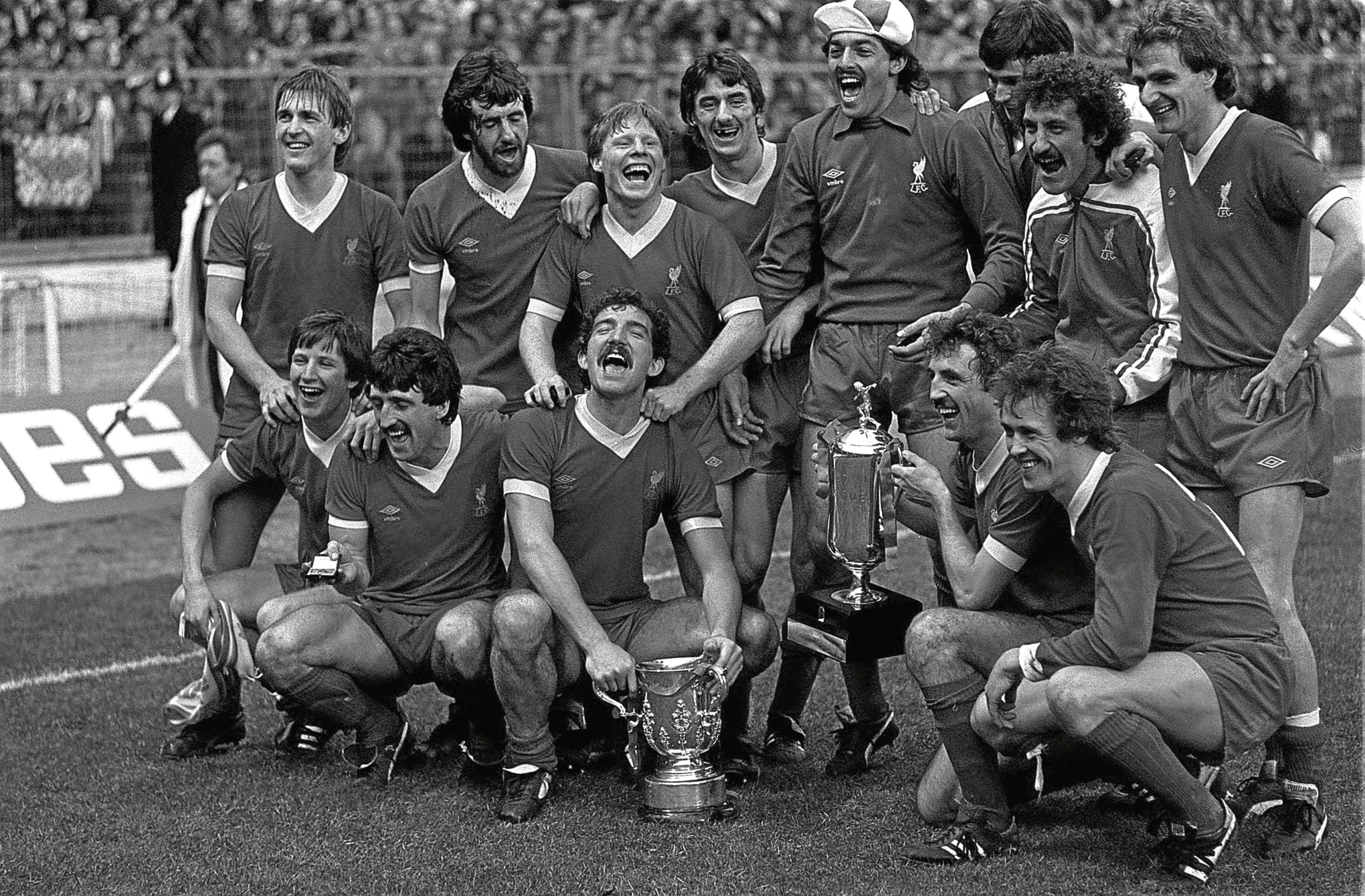
THE League Cup competition, on both sides of the border, has had its critics in recent years.
The debate as to whether or not it has its place in English football reared its head again in the past few days.
After Manchester United defeated Burton Albion 4-1 at Old Trafford, Jose Mourinho questioned the importance of this particular tournament.
He said: “If the competition is an official competition, then it is important for Manchester United and for me as a manager. If you ask me could English football survive or even be better without this competition? Maybe. Maybe we’d be fresher for European competition, for example.”
The Tottenham Hotspur manager, Mauricio Pochettino, has also stated that he is not prioritising either of the domestic Cup competitions.
I have to disagree with them.
As a Liverpool player, I won this competition four times-in-a-row from 1981 to 1984. When we defeated Tottenham in 1982 and Manchester United the following year, both Finals were played at Wembley in front of 100,000 supporters.
Indeed, in last year’s Final, Manchester United won 3-2 against Southampton in front of 85,000.
So it certainly has its place with the supporters. Although I accept the early rounds can sometimes be not be particularly well attended.
If we go back to that United v Burton game, both managers made nine changes from their previous game. That allowed some players to gain time on the pitch, and that cannot be underestimated. Playing in this competition is better than playing reserve-team football. It is definitely more beneficial.
In fact, it will be 49 years tomorrow since my debut for Celtic in a League Cup tie away to Hamilton Accies.
I went on to play in six Finals in the competiton with the Hoops, but won just one.
Of course, I accept that some fans want to see the strongest team on the field at all times but, for a variety of reasons, that’s not always possible. Yes, you may still see a sub-standard performance on the night, but not a sub-standard team as managers carry squads of 22-24 players for a reason.
When I was a player, we’d play between 50 and 60 games a season. We loved it. Now, I know with the introduction of sports science and the new information available, I will sound like an old dinosaur, but I loved playing. We all did. We never said we were tired. Or injured. If anything, we’d cover up some injuries.
Some will say that if we had that level of education available to us, it might have made us better players. There is certainly a case for that line of thinking.
But what has changed in the past decade is the level of workload placed onto the shoulders of a manager.
Where I would find some common ground with Jose’s way of thinking on this would be purely from a managerial point of view.
I think the modern-day manager needs a rest from the stresses of the day-to-day duties. One less competition would allow that to a certain degree.
When I managed Liverpool for my second time in charge, it was much different from the first time in the 80s and 90s. The demands were far greater.
I’m sure Jose would admit to there being much more on his shoulders nowadays compared to even 13 years ago when he took over at Chelsea for the first time.
Of course, I accept that managers at this level are highly paid and this is the profession they have chosen. But there is a duty of care involved and the game has to look after them.
Their summer breaks are shorter and EPL bosses don’t get an official winter break. They travel all over the world to different continents to play in pre-season games to accommodate the demands of sponsors and to fulfil their commercial obligations.
They will do more than 100 media conferences per season. They have the transfer windows to cope with and the uncertainty that brings.
They have to take training, deal with their Board, speak to unhappy players, console others, lift the place after a defeat, assess the opposition, take on midweek games on the road, pick the team and try to get tactical instruction and team shape over to the players in, sometimes, just one session.
Honestly, it’s more tiresome for managers than it is for players. They genuinely need a wee break every now and again to switch off from the constant demands of the game.
They also work under enormous pressure, knowing that they are only ever three defeats away from being sacked.
There is no fun or enjoyment to be had from working under such circumstances. No matter how many zeros are in your salary and bonuses.

Enjoy the convenience of having The Sunday Post delivered as a digital ePaper straight to your smartphone, tablet or computer.
Subscribe for only £5.49 a month and enjoy all the benefits of the printed paper as a digital replica.
Subscribe